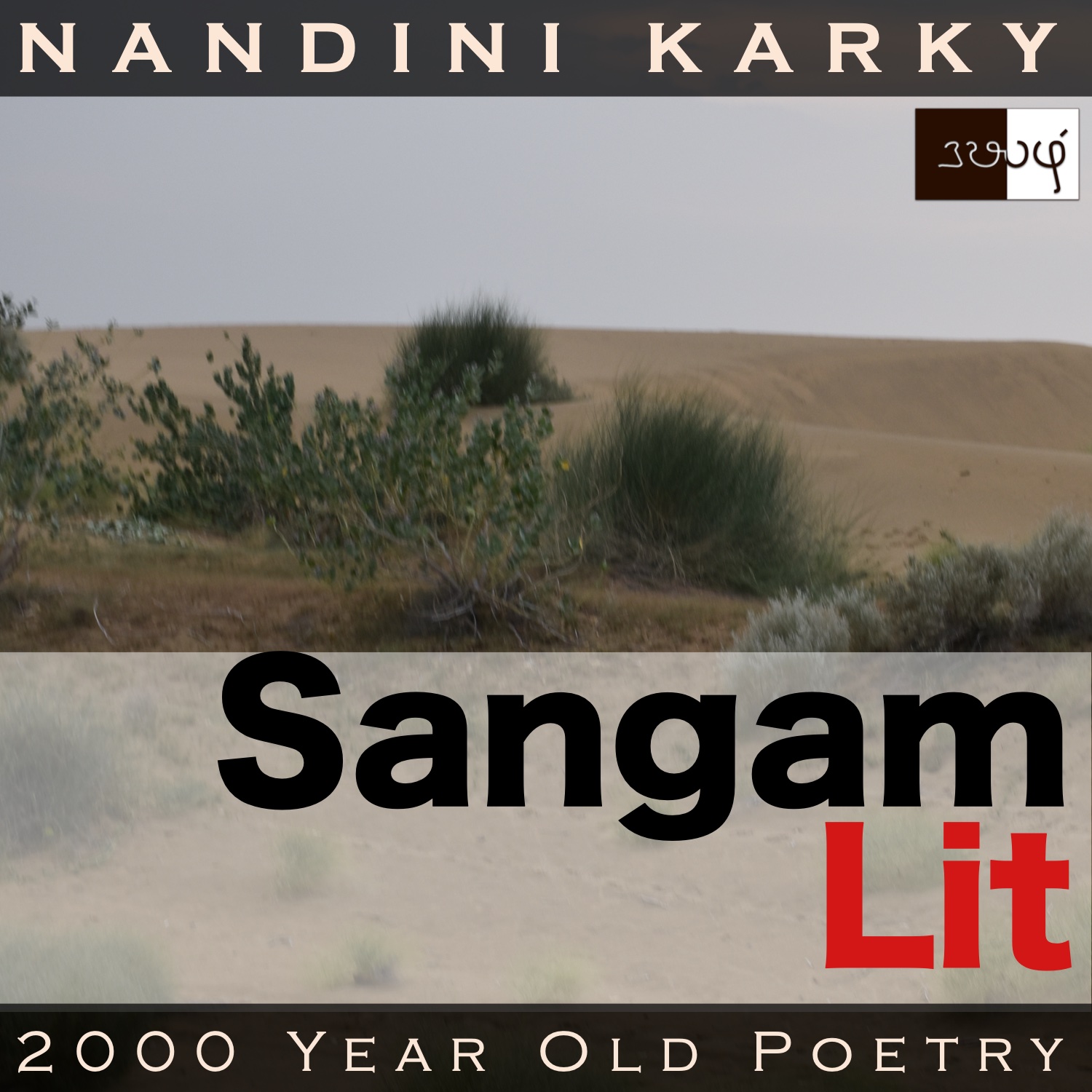Podcast: Play in new window | Download
Subscribe: Apple Podcasts | Spotify | Amazon Music | Android | iHeartRadio | TuneIn | RSS | More

In this episode, we perceive the sound reasoning in a pertinent question, as portrayed in Sangam Literary work, Kurunthogai 124, penned by Paalai Paadiya Perunkadunko. The verse is situated in the drylands of ‘Paalai’ and speaks in the voice of the confidante to the man, as he prepares to part away from the lady.
உமணர் சேர்ந்து கழிந்த மருங்கின், அகன் தலை,
ஊர் பாழ்த்தன்ன ஓமைஅம் பெருங் காடு
இன்னா என்றிர்ஆயின்,
இனியவோ-பெரும!-தமியோர்க்கு மனையே?
The dust of desolation coats this verse! In the opening words ‘உமணர் சேர்ந்து கழிந்த’, we glimpse at ‘a group of salt merchants departing’ and as we have seen in other Sangam verses, these salt merchants tend to travel long distances, but always in huge groups. An image of a ruined place rises before our eyes in ‘ஊர் பாழ்த்தன்ன’ meaning ‘akin to an abandoned town’. A tree, oft-encountered in Sangam verses from the ‘Paalai’ region, appears in ‘ஓமை’ or ‘toothbrush tree’. Words of judgement can be heard in ‘இன்னா என்றிர்’ meaning ‘you say it is dismal’. Ending with the words, ‘தமியோர்க்கு மனையே’ meaning ‘a house, to one who is alone’, the verse piques our curiosity.
What substance hides in these images of deserted towns and dismal places? The context reveals that the man and lady were leading a happy, married life when the man decided to part away on a mission. As he prepares to leave, the confidante insists that he take the lady along with him. But, the man tries to thwart her request by citing the many hardships in his journey. To the man, the confidante says, “After salt merchants have parted away along with their kith and kin, there, the wide open spaces of their town would lie barren, similar to huge drylands tracts filled with ‘omai’ trees. This drylands path would render misery, you say, O lord. Tell me then, to those left behind alone, would the home render joy?” With these words, the confidante attacks the logic in the man’s statement about the journey’s hardships and reiterates her request to take the lady along in his travels.
The first thing that impresses me in this verse is that there was an option for the lady to travel with the man in those times and it was not like she was condemned to stay at home, without a choice. But, will the man listen to the confidante’s words? Let us probe further to understand the nuances. The confidante starts by zooming on to the image of salt merchants. There seems to be the hustle and bustle of preparing to leave on a journey. It’s not just the men parting away to sell their wares but entire families. Pausing here, the confidante shifts from the people to the place and points to us, how the town would lie barren after they have gone their way. Then, she informs us that’s exactly how a drylands tract with ‘toothbrush trees’ would appear. The reason she’s talking about this drylands path becomes evident when she mentions that as the path the man would take in his travels and how he had described that path as one that would cause hardship and suffering to the lady. After outlining the man’s words of protest, the confidante turns to him and asks, ‘do you think the homes of those who are left behind would shower them with joy?’
What a punch! With a single question, the confidante makes the man understand the other side of the equation. The confidante seems to shake the man with the words, ‘you say travelling with you is difficult but do you think being here at home is easy?’ A piercing way to expand one’s perspective! Will the man be thoughtful enough to see the situation from the eyes of his lady? We know not, but the verse sure shows us how to challenge and question even seemingly valid concerns and approach a subject from all angles before a decision is taken. Whether we are asked such a question or whether we ask such a question, it always pays to see with the eyes of the other, to perceive the whole truth as it’s meant to be!




Share your thoughts...